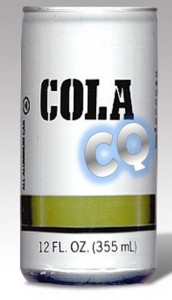Channels of Logic Approach/Connective Questions (COLAcq sm)
 Channels of Logic Approach (COLA): One of the beautiful aspects of the work we do is the pattern of locatable logic to be found supporting the actions of the individuals we serve. Logic deserves to be validated because it is a unit of consideration – in my world there’s always room to award credit for effort, no matter the outcome. Learn more about how pinpointing logic is the first step in helping a person to acknowledge the existence of a larger “social logic”.
Channels of Logic Approach (COLA): One of the beautiful aspects of the work we do is the pattern of locatable logic to be found supporting the actions of the individuals we serve. Logic deserves to be validated because it is a unit of consideration – in my world there’s always room to award credit for effort, no matter the outcome. Learn more about how pinpointing logic is the first step in helping a person to acknowledge the existence of a larger “social logic”.
If we dig deep enough then we will find that logic. Never take for granted what a person knows (and does not know). By processing with an individual using a process of “CONNECTIVE QUESTIONS” (CQ) getting to that logic happens with greater swiftness.
Connective Questioning (CQing) is the process (of elimination) of posing context-specific questions to an individual as a means of zeroing in on how that person has perceived a situation and how that perception led to formation of a specific logic used as the basis for a reaction to that situation.
Why questions? I’ve found that questions activate focus much quicker than statements. I try to pack conversations full of questions. Whereas statements tend to go in one ear and out the other (especially if the listener senses any hint of criticism or reprimand involved), questions engage the wheels of the mind. Questions also signal to the listener that his/her perspective matters and is required at the present. Concentrate on forming questions rather than statements and you will find an easy way ensure maintaining dialogue.
Here is a real example:
 I started with a question to confirm what he wanted and then worked with him so that he was the one who decided that stopping was necessary.
I started with a question to confirm what he wanted and then worked with him so that he was the one who decided that stopping was necessary.
CQs can have regulatory value (lessen anxiety), is incredibly validating, and, again…ensures the existence of real dialogue. Logic was validated and the addition of other, necessary social variables occurred. In truth, I don’t blame Scott for becoming upset: He naturally has a difficult time handling surprises. Questions like “Guess What?” (this is a great tool for instant redirection – try it) pointed us instantly in the direction of active dialogue.
I didn’t assume that he would associate the details of the situtation: random stop + gas station = we must need gas to get to our destination. My job in this situation was to show him how this digression in our course was necessary AND not done to stir up any anxiety. Telling him what I was doing wouldn’t have been enough. CQs ensured there would be parallel processing of the matter at hand. Given the restricted number of variables that Scott was using at the time he was perfectly valid in reaching that initial intellectual and emotional conclusion: anxiety and anger. My job was to provide the simplest way possible for him to both recognize my perspective and learn, more importantly, how to increase the amount of variables that he naturally uses to better process a situation like that one or ones like it in the future.
And, that success Scott had can be used in the future as an example to help with similarly related events that he can’t naturally extract from memory for use. As I pumped the gas I stole looks of Scott through the window alternating between serious expressions of processing and smiles followed by approving nods.
In the end, even though I knew gassing up the car was not up for debate, Scott got to ultimately decide whether or not it needed to happen. Making successful decisions builds confidence and plants a seed that successful dialogue between us is possible. It’s a Win/Win.
COLAcq is is the beverage that’s genuinely healthy for anyone’s social diet..
0 Comments.